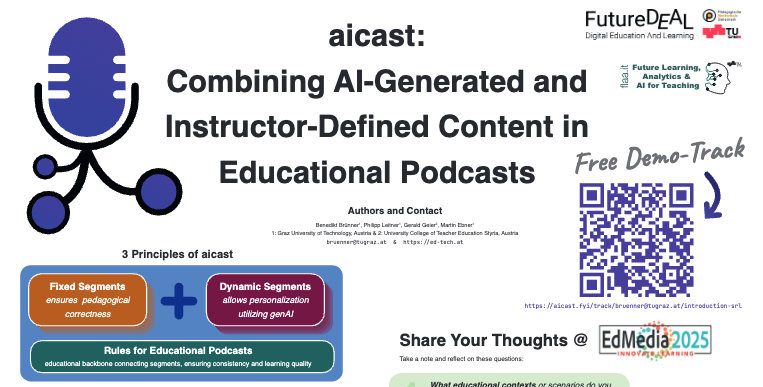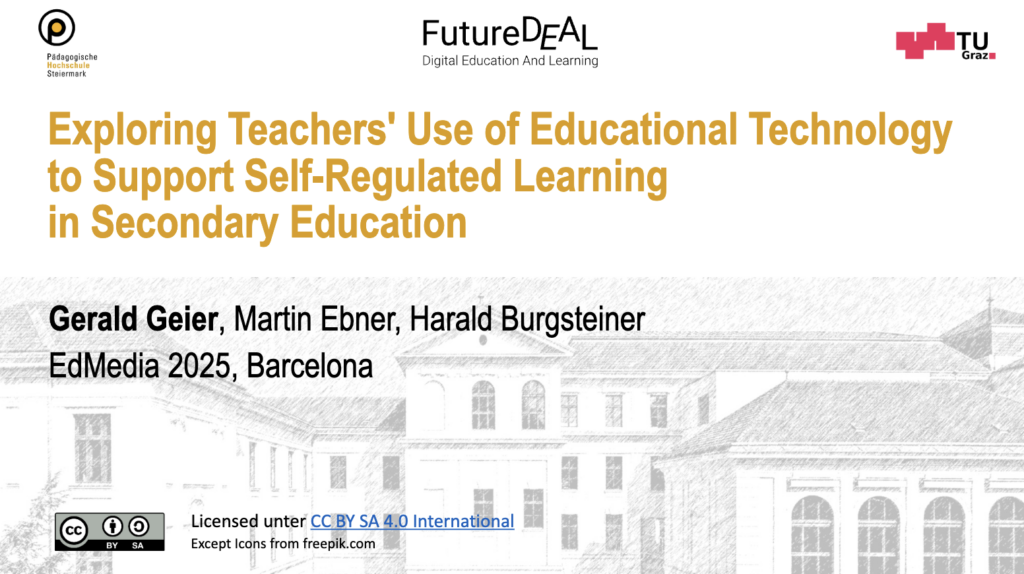At this year’s ED-Media conference, we introduced a new AI-based concept for educational podcasts: „aicast: Combining AI-Generated and Instructor-Defined Content in Educational Podcasts„.
Abstract:
Generative AI is transforming educational content. In this poster, we present aicast.fyi, an open-source platform for producing personalized educational podcasts that combine AI-generated and instructor-defined content. Each track contains dynamic and fixed segments. Instructors define guiding questions during track design, ensuring alignment with learning objectives. This hybrid approach addresses concerns about maintaining instructional integrity with automation and personalization. The poster provides an architectural overview and demonstrates how the system integrates text generation and voice synthesis to produce audio-based learning experiences. Instructional designers must play an active role in shaping AI-assisted educational tools. This poster invites educators, designers, and researchers to engage with aicast and collaborate on developing high-quality, responsible, and learner-centered audio content. By allowing learners to control content sequences and personalize segments based on their own inputs, aicast.fyi also supports self-regulated learning (SRL), empowering users to take ownership of their educational journey.
[draft @ ResearchGate]
[full article @ conference website]
Reference: Brünner, B., Leitner, P., Geier, G. & Ebner, M. (2025). aicast: Combining AI-Generated and Instructor-Defined Content in Educational Podcasts. In T. Bastiaens (Ed.), Proceedings of EdMedia + Innovate Learning (pp. 148-152). Barcelona, Spain: Association for the Advancement of Computing in Education (AACE). Retrieved June 4, 2025 from https://www.learntechlib.org/primary/p/226139/


